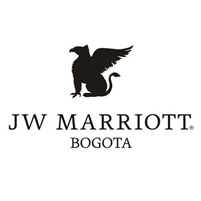[vc_row full_width=”stretch_row” content_placement=”middle”][vc_column][rev_slider_vc alias=”home-ingles”][/vc_column][/vc_row][vc_row][vc_column][vc_empty_space height=”50px”][vc_btn title=”This is how ASIPI Bogota 2018 was celebrated” shape=”square” color=”primary” align=”center” i_type=”openiconic” i_icon_openiconic=”vc-oi vc-oi-camera” link=”url:http%3A%2F%2Fasipi.org%2Fbogota2018%2Fpost-evento%2F%3Flang%3Den|title:This%20is%20how%20ASIPI%20Bogota%202018%20was%20celebrated|” add_icon=”true” el_class=”post-event-button”][vc_empty_space height=”25px”][/vc_column][/vc_row][vc_row container=”1″][vc_column][sh_ticket title=”Time remaining for the event ” subtitle=”April 08, 2018″ date=”2018/04/08″ btn_link=”/bogota2018/registro-bogota?lang=en” btn_text=”REGISTER”][/vc_column][/vc_row][vc_row][vc_column][vc_custom_heading text=”PROGRAM” font_container=”tag:h2|text_align:center|color:%231e73be” google_fonts=”font_family:Lato%3A100%2C100italic%2C300%2C300italic%2Cregular%2Citalic%2C700%2C700italic%2C900%2C900italic|font_style:400%20regular%3A400%3Anormal”][sh_schedule cat=”programa-academico” style=”1″ num=”3″][/sh_schedule][vc_cta h2=”Workshops Registration Only (Sat. Apr/7)” txt_align=”center” shape=”square” color=”blue” add_button=”bottom” btn_title=”REGISTER” btn_shape=”square” btn_color=”blue” btn_align=”center” btn_i_icon_fontawesome=”fa fa-pencil” btn_link=”url:http%3A%2F%2Fasipi.org%2Fbogota2018%2Finscripcion-talleres%2F||” btn_add_icon=”true”]If you want to attend only to our workshops, enter here..[/vc_cta][/vc_column][/vc_row][vc_row][vc_column][vc_empty_space][vc_custom_heading text=”COSTS
” font_container=”tag:h2|text_align:center|color:%231e73be” google_fonts=”font_family:Lato%3A100%2C100italic%2C300%2C300italic%2Cregular%2Citalic%2C700%2C700italic%2C900%2C900italic|font_style:400%20regular%3A400%3Anormal”][/vc_column][/vc_row][vc_row][vc_column][sh_pricing_section][sh_pricing_table title=”Member” currency=”$” price=”1.150″ feature_str=”Registration Fee.
We reserve the right to register.” btn_link=”/bogota2018/registro-bogota/”][sh_pricing_table title=”Non-Member” currency=”$” price=”1.450″ feature_str=”Registration Fee.
We reserve the right to register.” btn_link=”/bogota2018/registro-bogota/”][/sh_pricing_section][/vc_column][/vc_row][vc_row][vc_column][vc_icon icon_fontawesome=”fa fa-map-marker” color=”sky” background_style=”rounded” align=”center”][vc_custom_heading text=”LOCATION” font_container=”tag:h2|text_align:center|color:%231e73be” google_fonts=”font_family:Lato%3A100%2C100italic%2C300%2C300italic%2Cregular%2Citalic%2C700%2C700italic%2C900%2C900italic|font_style:400%20regular%3A400%3Anormal” css=”.vc_custom_1515789874048{padding-bottom: 20px !important;}”][/vc_column][/vc_row][vc_row full_width=”stretch_row” equal_height=”yes” container=”1″ css=”.vc_custom_1511799552552{padding-top: 40px !important;padding-bottom: 20px !important;background-color: #e1f3f7 !important;background-position: center !important;background-repeat: no-repeat !important;background-size: contain !important;}”][vc_column width=”1/2″ css=”.vc_custom_1511789973827{background-color: #ffffff !important;background-position: center !important;background-repeat: no-repeat !important;background-size: contain !important;}”][vc_column_text css=”.vc_custom_1515790445717{background-color: #ffffff !important;}”]

HOTEL HILTON
BOGOTA
Rates
- Single or Double Room: USD 239
- _
- Include breakfast buffet, tips and taxes.
- Colombian passengers: It does not include VAT 19%, it will be added at the moment of confirming the reservation.
- Foreign Passengers: They must present their document at check-in, with the stamp of entry to the country as tourists (PIP-3, PIP-5, PIP-6 or PIP-10 or current temporary visa TP-7, TP11 or TP12). In case of not having the stamp, the Hotel will charge 19% VAT in the total hotel bill.
[/vc_column_text][vc_column_text css=”.vc_custom_1515790110300{padding-top: 20px !important;background-color: #ffffff !important;}”]
To book please contact [email protected]
[/vc_column_text][vc_btn title=”READ MORE…” style=”classic” shape=”square” color=”blue” align=”center” i_icon_fontawesome=”fa fa-bed” add_icon=”true” button_block=”true” link=”url:%2Fbogota2018%2Fhoteles%2F|title:READ%20MORE…|target:%20_blank” css=”.vc_custom_1515790143476{padding-top: 20px !important;padding-right: 20px !important;padding-bottom: 20px !important;padding-left: 20px !important;background-color: #ffffff !important;}”][/vc_column][vc_column width=”1/2″ css=”.vc_custom_1511789990931{background-color: #ffffff !important;}”][vc_column_text css=”.vc_custom_1515790429461{background-color: #ffffff !important;}”]

HOTEL MARRIOT
BOGOTA
Rates
- Single or Double Room Rate: USD 329
- _
- Include breakfast buffet, tips and taxes.
- Colombian passengers: It does not include VAT 19%, it will be added at the moment of confirming the reservation.
- Foreign Passengers: They must present their document at check-in, with the stamp of entry to the country as tourists (PIP-3, PIP-5, PIP-6 or PIP-10 or current temporary visa TP-7, TP11 or TP12). In case of not having the stamp, the Hotel will charge 19% VAT in the total hotel bill.
[/vc_column_text][vc_column_text css=”.vc_custom_1515790177945{padding-top: 20px !important;background-color: #ffffff !important;}”]
To book please contact [email protected]
[/vc_column_text][vc_btn title=”READ MORE…” style=”classic” shape=”square” color=”blue” align=”center” i_icon_fontawesome=”fa fa-bed” add_icon=”true” button_block=”true” link=”url:%2Fbogota2018%2Fhoteles%2F|title:READ%20MORE…|target:%20_blank” css=”.vc_custom_1515790203502{padding-top: 20px !important;padding-right: 20px !important;padding-bottom: 20px !important;padding-left: 20px !important;background-color: #ffffff !important;}”][/vc_column][/vc_row][vc_row full_width=”stretch_row_content” content_placement=”middle” css=”.vc_custom_1513876131035{padding-right: 105px !important;padding-bottom: 40px !important;padding-left: 105px !important;background-color: #e1f3f7 !important;}”][vc_column css=”.vc_custom_1513875602348{background-color: #ffffff !important;}”][vc_column_text css=”.vc_custom_1515790254225{padding-top: 10px !important;padding-right: 40px !important;padding-left: 40px !important;background-color: #ffffff !important;}”]
TRANSFER
Private transfer Airport / Hotel or vv.
Rate per way up to 2 passangers with moderate baggage USD 30 To book.[/vc_column_text][vc_column_text css=”.vc_custom_1515790229959{padding-top: 20px !important;padding-right: 40px !important;padding-bottom: 20px !important;padding-left: 40px !important;background-color: #ffffff !important;}”]
To book please contact [email protected]
[/vc_column_text][/vc_column][/vc_row][vc_row][vc_column][vc_empty_space][/vc_column][/vc_row][vc_row][vc_column width=”1/2″][vc_single_image image=”2120″ img_size=”medium” alignment=”right” style=”vc_box_shadow_3d”][/vc_column][vc_column width=”1/2″][vc_btn title=”BOOKING HERE” style=”classic” shape=”square” color=”blue” align=”center” i_icon_fontawesome=”fa fa-diamond” link=”url:%2Fbogota2018%2Freserva-aerea-2%2F|title:Booking%20Here|” add_icon=”true”][vc_column_text]
To book please contact [email protected]
[/vc_column_text][/vc_column][/vc_row][vc_row][vc_column][vc_empty_space height=”40″][vc_empty_space height=”40″][rev_slider_vc alias=”home-post-tour-eng”][/vc_column][/vc_row][vc_row][vc_column][vc_empty_space height=”80px”][vc_raw_html]JTNDZGl2JTIwaWQlM0QlMjJiYW5uZXItc3BvbnNvcnMlMjIlMjBjbGFzcyUzRCUyMnJvdyUyMiUzRSUwQSUzQ2RpdiUyMGNsYXNzJTNEJTIyY29sLW1kLTEyJTIwY29sLXNtLTEyJTIwY29sLXhzLTEyJTIwYmFubmVyJTIyJTNFJTBBJTNDZGl2JTIwY2xhc3MlM0QlMjJjb2wtbWQtNiUyMGNvbC1zbS02JTIwY29sLXhzLTYlMjAlMjIlM0UlM0NoNCUyMGNsYXNzJTNEJTIydGl0bGUtc3BvbnNvcnMlMjIlM0VNZWRpYSUyMFNwb25zb3JzJTNDJTJGaDQlM0UlM0MlMkZkaXYlM0UlMEElM0NkaXYlMjBjbGFzcyUzRCUyMmNvbC1tZC02JTIwY29sLXNtLTYlMjBjb2wteHMtNiUyMCUyMiUzRSUzQ2g0JTIwY2xhc3MlM0QlMjJ0aXRsZS1zcG9uc29ycyUyMiUzRVN1cHBvcnQlMjBTcG9uc29ycyUzQyUyRmg0JTNFJTNDJTJGZGl2JTNFJTNDJTJGZGl2JTNFJTBBJTNDJTJGZGl2JTNF[/vc_raw_html][/vc_column][/vc_row][vc_row][vc_column width=”1/2″][vc_raw_html css=”.vc_custom_1513195223022{padding-top: 20px !important;}”]JTNDZGl2JTIwY2xhc3MlM0QlMjJyb3clMjIlM0UlMEElMDklM0NkaXYlMjBjbGFzcyUzRCUyMmNvbC1tZC0zJTIwY29sLW1kLTMlMjBjb2wtbWQtMyUyMGNvbC1tZC1vZmZzZXQtMiUyMHRleHQtY2VudGVyJTIyJTNFJTNDaW1nJTIwY2xhc3MlM0QlMjJpbWctcmVzcG9uc2l2ZSUyMiUyMHNyYyUzRCUyMmh0dHAlM0ElMkYlMkZwdWVydG9yaWNvMjAxNy5hc2lwaS5vcmclMkZ3cC1jb250ZW50JTJGdXBsb2FkcyUyRjIwMTclMkYwNSUyRk1BUkNBLVNVUi5qcGclMjIlM0UlM0MlMkZkaXYlM0UlMEElMDklM0NkaXYlMjBjbGFzcyUzRCUyMmNvbC1tZC0zJTIwY29sLW1kLTMlMjBjb2wtbWQtMyUyMGNvbC1tZC1vZmZzZXQtMiUyMHRleHQtY2VudGVyJTIyJTNFJTNDaW1nJTIwY2xhc3MlM0QlMjJpbWctcmVzcG9uc2l2ZSUyMiUyMHNyYyUzRCUyMmh0dHAlM0ElMkYlMkZhcnViYTIwMTYuYXNpcGkub3JnJTJGd3AtY29udGVudCUyRnVwbG9hZHMlMkYyMDE3JTJGMDUlMkZNQU5BR0lOLUlOVEVMTEVDVFVBTC1QUk9QRVJUWS5qcGclMjIlM0UlM0MlMkZkaXYlM0UlMEElM0MlMkZkaXYlM0UlMEElM0NkaXYlMjBjbGFzcyUzRCUyMnJvdyUyMiUzRSUwQSUwOSUzQ2RpdiUyMGNsYXNzJTNEJTIyY29sLW1kLTMlMjBjb2wtbWQtMyUyMGNvbC1tZC0zJTIwY29sLW1kLW9mZnNldC0yJTIwdGV4dC1jZW50ZXIlMjIlM0UlM0NpbWclMjBjbGFzcyUzRCUyMmltZy1yZXNwb25zaXZlJTIyJTIwc3JjJTNEJTIyaHR0cCUzQSUyRiUyRmFzaXBpLm9yZyUyRmJvZ290YTIwMTglMkZ3cC1jb250ZW50JTJGdXBsb2FkcyUyRnNpdGVzJTJGMTIlMkYyMDE3JTJGMTIlMkZsb2dvLWlwLXByby5qcGclMjIlMjBzdHlsZSUzRCUyMm1hcmdpbiUzQSUyMDEuNWVtJTIwMCUzQiUyMiUzRSUzQyUyRmRpdiUzRSUwQSUwOSUzQ2RpdiUyMGNsYXNzJTNEJTIyY29sLW1kLTMlMjBjb2wtbWQtMyUyMGNvbC1tZC0zJTIwY29sLW1kLW9mZnNldC0yJTIwdGV4dC1jZW50ZXIlMjIlM0UlM0NpbWclMjBjbGFzcyUzRCUyMmltZy1yZXNwb25zaXZlJTIyJTIwc3JjJTNEJTIyaHR0cCUzQSUyRiUyRmFzaXBpLm9yZyUyRmJ1ZW5vc2FpcmVzMjAxNiUyRndwLWNvbnRlbnQlMkZ1cGxvYWRzJTJGMjAxNyUyRjA1JTJGQVdQSS5qcGclMjIlM0UlM0MlMkZkaXYlM0UlMEElM0MlMkZkaXYlM0U=[/vc_raw_html][/vc_column][vc_column width=”1/2″][vc_raw_html]JTNDZGl2JTIwY2xhc3MlM0QlMjJyb3clMjIlM0UlMEElM0NkaXYlMjBjbGFzcyUzRCUyMmNvbC1tZC00JTIwY29sLW1kLTQlMjBjb2wtbWQtNCUyMGNvbC1tZC1vZmZzZXQtNCUyMHRleHQtY2VudGVyJTIyJTNFJTNDaW1nJTIwY2xhc3MlM0QlMjJpbWctcmVzcG9uc2l2ZSUyMiUyMHNyYyUzRCUyMmh0dHAlM0ElMkYlMkZhcnViYTIwMTYuYXNpcGkub3JnJTJGd3AtY29udGVudCUyRnVwbG9hZHMlMkYyMDE3JTJGMDUlMkZBQlBJLmpwZyUyMiUzRSUzQyUyRmRpdiUzRSUwQSUzQyUyRmRpdiUzRQ==[/vc_raw_html][/vc_column][/vc_row][vc_row][vc_column][vc_raw_js]JTNDc2NyaXB0JTIwdHlwZSUzRCUyMnRleHQlMkZqYXZhc2NyaXB0JTIyJTNFJTIwJTBBalF1ZXJ5JTI4JTIyLmRvd25sb2FkLWJ0biUyMiUyOS5hdHRyJTI4JTIyaHJlZiUyMiUyQyUyMiUyMyUyMiUyOSUzQiUwQSUwQSUwQSUwQSUyMCUzQyUyRnNjcmlwdCUzRQ==[/vc_raw_js][/vc_column][/vc_row][vc_row][vc_column][vc_raw_html]JTNDc3R5bGUlM0UlMEEudGVhbS1zZWN0aW9uJTIwLnNlYy10aXRsZSUyMGgyJTIwJTdCJTBBJTIwJTIwJTIwJTIwY29sb3IlM0ElMjAlMjNmZmYlM0IlMEElN0QlMEElMEEuc2xpZGVyLWJpb211c2VvJTdCJTBBbWFyZ2luLXRvcCUzQS0yMDBweCUzQiUwQSU3RCUwQSUwQS5wb3N0JTIwLnBvc3QtY29udGVudCUyMHVsJTJDJTIwLnBvc3QlMjAucG9zdC1jb250ZW50JTIwb2wlMkMlMjAucGFnZSUyMC5wb3N0LWNvbnRlbnQlMjB1bCUyQyUyMC5wYWdlJTIwLnBvc3QtY29udGVudCUyMG9sJTdCJTBBcGFkZGluZy1sZWZ0JTNBJTIwMHB4JTIwJTIxaW1wb3J0YW50JTNCJTBBJTdEJTBBJTBBLnZjX3R0YS1jb2xvci1ncmV5LnZjX3R0YS1zdHlsZS1jbGFzc2ljJTIwLnZjX3R0YS10YWIudmNfYWN0aXZlJTNFYSUyMCU3QiUwQSUyMCUyMCUyMCUyMGJvcmRlci1jb2xvciUzQSUyMCUyM2YwZjBmMCUzQiUwQSUyMCUyMCUyMCUyMGJhY2tncm91bmQtY29sb3IlM0ElMjAlMjNmZmZmZmYlM0IlMEElMjAlMjAlMjAlMjBib3JkZXItdG9wLWNvbG9yJTNBJTIwJTIzMTgzNTdEJTNCJTBBJTIwJTIwJTIwJTIwYm9yZGVyLXRvcC13aWR0aCUzQSUyMDJweCUzQiUwQSUyMCUyMCUyMCUyMGNvbG9yJTNBJTIzMWU3M2JlJTNCJTBBJTdEJTBBJTBBLnZjX3R0YS1jb2xvci1ncmV5LnZjX3R0YS1zdHlsZS1jbGFzc2ljJTIwLnZjX3R0YS10YWIlM0VhJTIwJTdCJTBBJTIwJTIwJTIwJTIwYm9yZGVyLXRvcC1jb2xvciUzQSUyMCUyMzE4MzU3RCUzQiUwQSUyMCUyMCUyMCUyMGJvcmRlci10b3Atd2lkdGglM0ElMjAycHglM0IlMEElMjAlMjAlMjAlMjBjb2xvciUzQSUyMzFlNzNiZSUzQiUwQSU3RCUwQSUwQS52Y190dGEtY29sb3ItZ3JleS52Y190dGEtc3R5bGUtY2xhc3NpYy52Y190dGEtdGFicyUyMC52Y190dGEtcGFuZWxzJTIwLnZjX3R0YS1wYW5lbC1ib2R5JTIwJTdCJTBBJTIwJTIwJTIwJTIwYm9yZGVyLWNvbG9yJTNBJTIwJTIzZGRkJTNCJTBBJTIwJTIwJTIwJTIwcGFkZGluZy1sZWZ0JTNBJTIwMjBweCUzQiUwQSU3RCUwQSUwQS52Y190dGEtY29sb3Itc2t5LnZjX3R0YS1zdHlsZS1mbGF0LnZjX3R0YS10YWJzJTIwLnZjX3R0YS1wYW5lbHMlMjAlN0IlMEElMjAlMjAlMjAlMjBiYWNrZ3JvdW5kLWNvbG9yJTNBJTIwJTIzZTFmM2Y3JTNCJTBBJTdEJTBBJTBBLnZjX3R0YS1jb2xvci1za3kudmNfdHRhLXN0eWxlLWZsYXQlMjAudmNfdHRhLXRhYiUzRWElMjAlN0IlMEElMjAlMjAlMjAlMjBiYWNrZ3JvdW5kLWNvbG9yJTNBJTIwJTIzZTFmM2Y3JTNCJTBBJTIwJTIwJTIwJTIwY29sb3IlM0ElMjMxZTczYmUlM0IlMEElMjAlMjAlMjAlMjBib3JkZXItYm90dG9tLWNvbG9yJTNBJTIwd2hpdGUlM0IlMEElN0QlMEElMEEudmNfdHRhLWNvbG9yLXNreS52Y190dGEtc3R5bGUtZmxhdCUyMC52Y190dGEtdGFiLnZjX2FjdGl2ZSUzRWElMjAlN0IlMEElMjAlMjAlMjAlMjBiYWNrZ3JvdW5kLWNvbG9yJTNBJTIwJTIzZTFmM2Y3JTNCJTBBJTIwJTIwJTIwJTIwY29sb3IlM0ElMjMxZTczYmUlM0IlMEElN0QlMEElMEEudmNfdHRhLXRhYnMlM0Fub3QlMjglNUJjbGFzcyUyQSUzRHZjX3R0YS1nYXAlNUQlMjklM0Fub3QlMjgudmNfdHRhLW8tbm8tZmlsbCUyOS52Y190dGEtdGFicy1wb3NpdGlvbi10b3AlMjAudmNfdHRhLXRhYi52Y19hY3RpdmUlM0VhJTIwJTdCJTBBJTIwJTIwJTIwJTIwYm9yZGVyLWJvdHRvbS1jb2xvciUzQSUyMCUyMzE4MzU3RCUzQiUwQSU3RCUwQSUwQS52Y190dGEtY29sb3Itc2t5LnZjX3R0YS1zdHlsZS1mbGF0JTNBbm90JTI4LnZjX3R0YS1vLW5vLWZpbGwlMjklMjAudmNfdHRhLXBhbmVsLWJvZHklN0IlMEElMjAlMjAlMjAlMjBjb2xvciUzQSUyMCUyMzAwMCUzQiUwQSU3RCUwQSUwQS5pbWctdGFiLWdlbyU3QiUwQSUyMCUyMCUyMCUyMC13ZWJraXQtYm94LXNoYWRvdyUzQSUyMC0zOXB4JTIwNDJweCUyMDBweCUyMC0yN3B4JTIwcmdiYSUyODI5JTJDNTYlMkMxMzMlMkMxJTI5JTNCJTBBJTIwJTIwJTIwJTIwLW1vei1ib3gtc2hhZG93JTNBJTIwLTM5cHglMjA0MnB4JTIwMHB4JTIwLTI3cHglMjByZ2JhJTI4MjklMkM1NiUyQzEzMyUyQzElMjklM0IlMEElMjAlMjAlMjAlMjBib3gtc2hhZG93JTNBJTIwLTM5cHglMjA0MnB4JTIwMHB4JTIwLTI3cHglMjByZ2JhJTI4MjklMkM1NiUyQzEzMyUyQzElMjklM0IlMEElN0QlMEElMEEudmNfYnRuMy52Y19idG4zLXNpemUtbWQlN0IlMEElMjAlMjAlMjAlMjBmb250LXNpemUlM0ElMjAxOHB4JTIwJTIxaW1wb3J0YW50JTNCJTBBJTIwJTIwJTIwJTIwZm9udC13ZWlnaHQlM0ElMjBib2xkJTIwJTIxaW1wb3J0YW50JTNCJTBBJTdEJTBBJTNDJTJGc3R5bGUlM0U=[/vc_raw_html][/vc_column][/vc_row]


